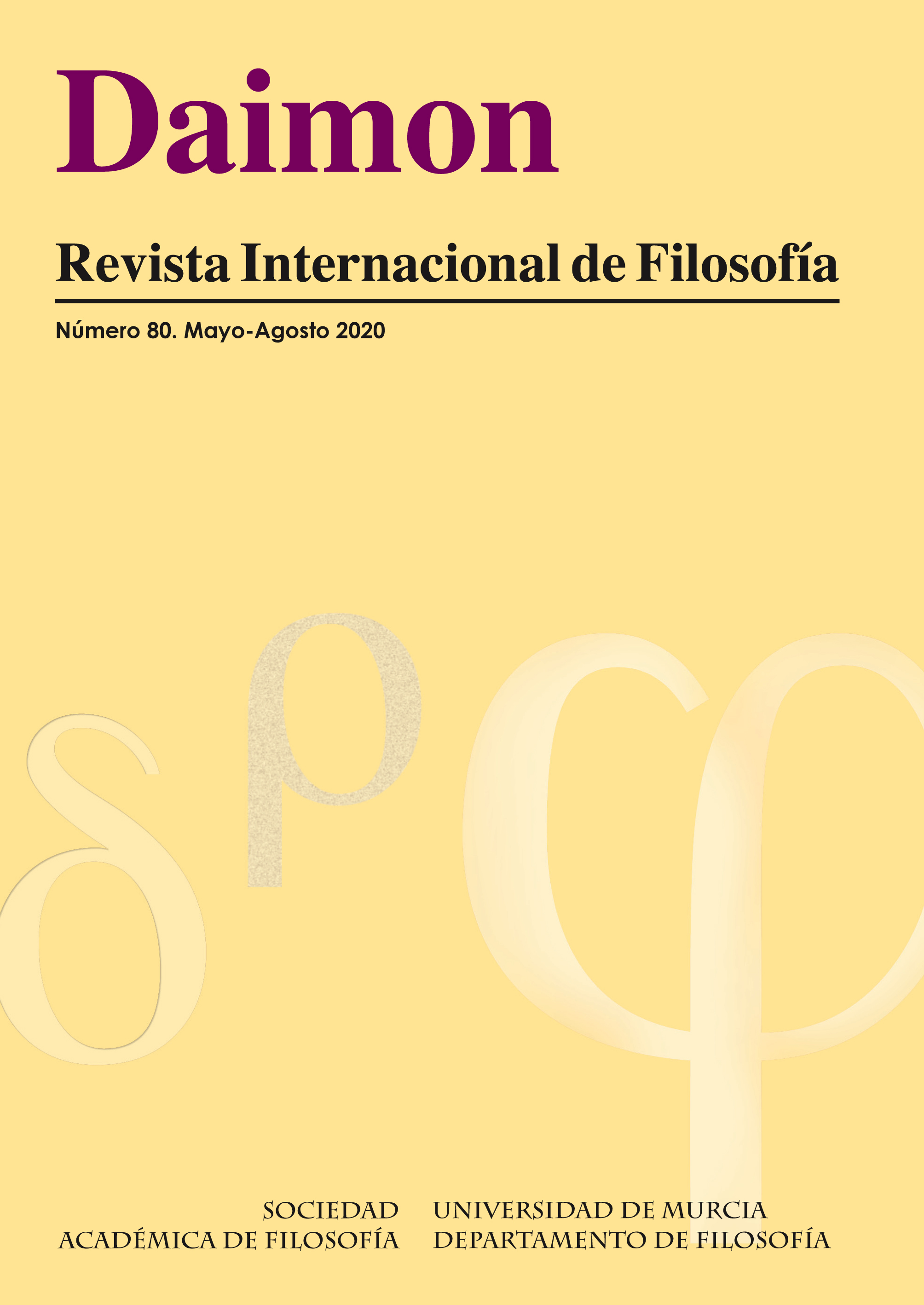Coordination of contexts and taste disagreements
Abstract
In this paper, I will defend that there is an asymmetry between straightforwardly factual and non-straightforwardly factual disagreements (Field 2009) in terms of persistency and retraction, and that we can use what I will call coordination of contexts to explain these two asymmetries. To make my point I will focus on the kinematics of this type of disagreements. I will argue that one way to give a proper account of the kinematics of disagreements about taste and to discriminate between these two cases of disagreement is to focus on coordination of contexts.
Downloads
-
Abstract2044
-
PDF 366
Literaturhinweise
BLOME-TILLMANN, Michael (2014): Knowledge and presuppositions, Oxford University Press, Oxford.
FIELD, Hartry (2009): «Epistemology without metaphysics», Philosophical Studies, nº 143, pp. 249-290.
GLANZBERG, Michael (2007): «Context, content, and relativism», Philosophical Studies, nº 136(1), pp. 1-29.
HUME, David (1826): «Of the standard of taste», in The philosophical works of David Hume, vol. 3, A. Black and W. Tait, Edinburgh, pp. 256-282.
HUVENES, Torfinn T. (2012): «Varieties of disagreement and predicates of taste», Australasian Journal of Philosophy, nº 90(1), pp. 167-181.
HUVENES, Torfinn T. (2014): «Disagreement without error», Erkenntnis, nº 79, pp. 143-154.
LASERSOHN, Peter (2005): «Context dependence, disagreement, and predicates of personal taste», Linguistics and Philosophy, nº 28, pp. 643-686.
LEWIS, David (1979): «Scorekeeping in a language game», Journal of Philosophical Logic, nº 8(1), pp. 339-359.
LÓPEZ DE SA, Dan (2015): «Expressing disagreement: a presuppositional indexical contextualist relativist account», Erkenntnis, nº 80, pp. 153-165.
MACFARLANE, John (2007): «Relativism and disagreement», Philosophical Studies, nº 132(1), pp. 17-31.
MACFARLANE, John (2014): Assessment-sensitivity: Relative truth and its applications, Oxford University Press, New York.
MARQUES, Teresa (2015): «Disagreeing in context», Frontiers in Psychology, nº 6, pp. 1-12.
MESKIN, Aron & ROBSON, Jon (2015): «Taste and acquaintance», The Journal of Aesthetics and Art Criticism, nº 73(2), pp. 127-139.
RECANATI, Francois (2004): Literal meaning, Cambridge University Press, New York.
SCHAFFER, Jonathan (2011): «Perspective in taste predicates and epistemic modals», in: A. Egan and B. Weatherson (eds.): Epistemic modality, Oxford University Press, Oxford, pp. 179-226.
SMITH, Barry C. (2007): «The objectivity of tastes and tasting», in: B. C. Smith (ed.): Questions of taste: The philosophy of wine, Signal Books Limited, Oxford, pp. 61-101.
SMITH, Barry C. (2010): «Relativism, disagreement and predicates of personal taste», in: F. Recanati, I. Stojanovic & N. Villanueva (eds.): Context-dependence, perspective and relativity, Mouton de Gruyter, Göttingen, pp. 195-224.
STEVENSON, Charles L. (1944/1960): Ethics and language, Yale University Press, New Haven.
STOJANOVIC, Isidora (2007): «Talking about taste: Disagreement, implicit arguments, and relative truth», Linguistics and philosophy, nº 30(6), pp. 691-706.
SUNDELL, Timothy (2011): «Disagreements about taste», Philosophical Studies, nº 155(2), pp. 267-288.
Las obras que se publican en esta revista están sujetas a los siguientes términos:
1. El Servicio de Publicaciones de la Universidad de Murcia (la editorial) conserva los derechos patrimoniales (copyright) de las obras publicadas, y favorece y permite la reutilización de las mismas bajo la licencia de uso indicada en el punto 2.
2. Las obras se publican en la edición electrónica de la revista bajo una licencia Creative Commons Reconocimiento-NoComercial-SinObraDerivada 3.0 España (texto legal). Se pueden copiar, usar, difundir, transmitir y exponer públicamente, siempre que: i) se cite la autoría y la fuente original de su publicación (revista, editorial y URL de la obra); ii) no se usen para fines comerciales; iii) si remezcla, transforma o crea a partir del material, no podrá distribuir el material modificado.
3. Condiciones de auto-archivo. Se permite y se anima a los autores a difundir electrónicamente las versiones pre-print (versión antes de ser evaluada) y/o post-print (versión evaluada y aceptada para su publicación) de sus obras antes de su publicación, ya que favorece su circulación y difusión más temprana y con ello un posible aumento en su citación y alcance entre la comunidad académica. Color RoMEO: verde.











